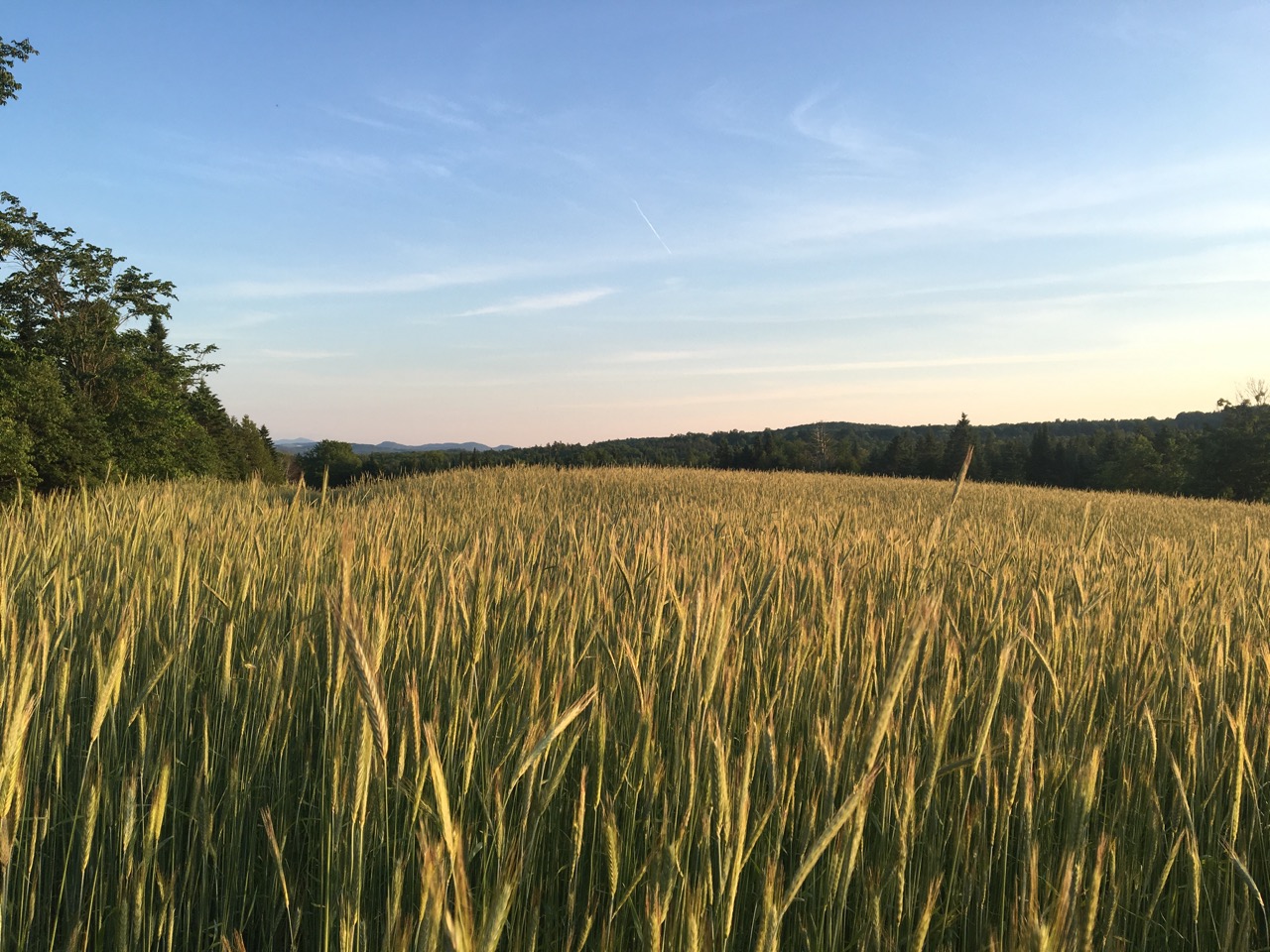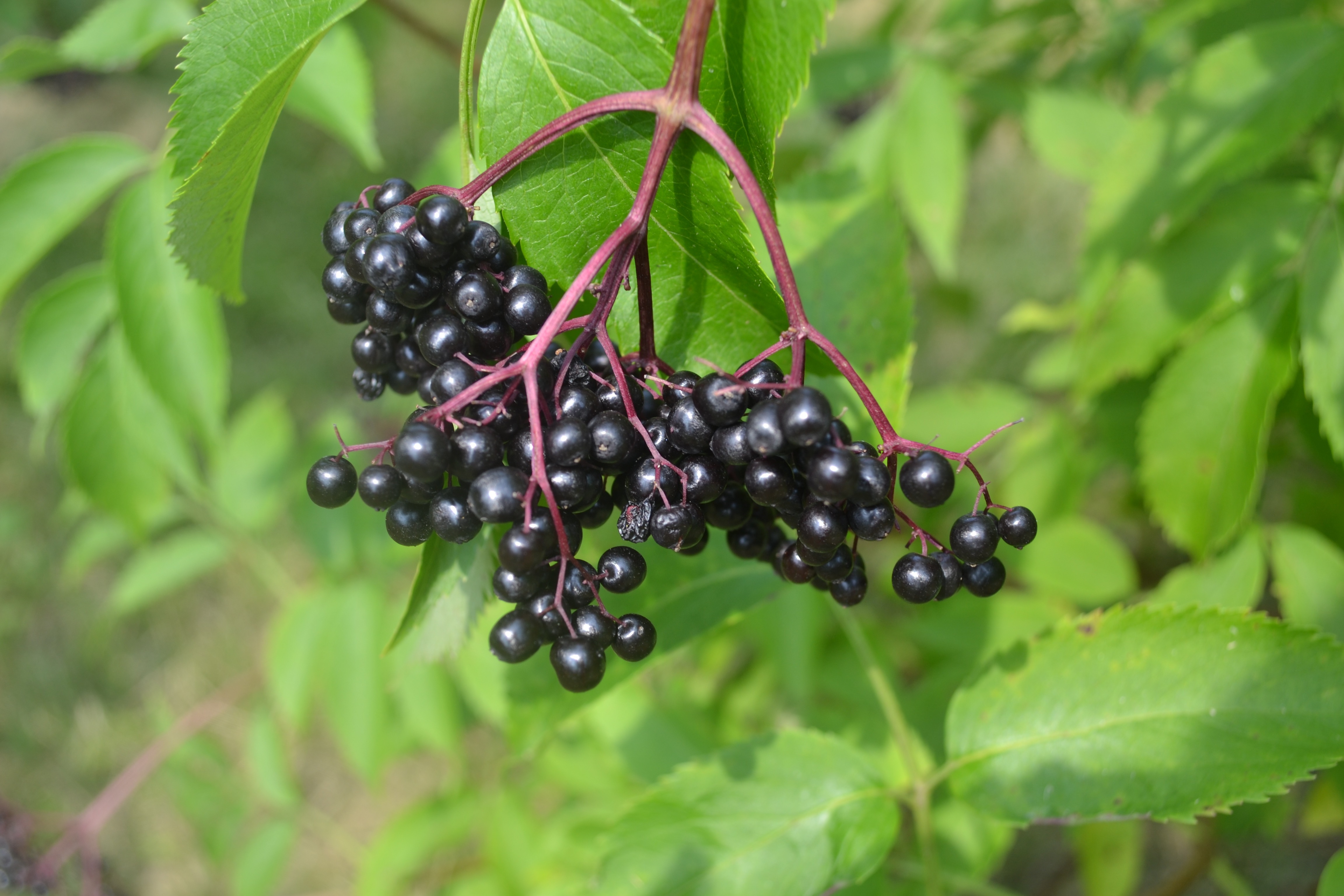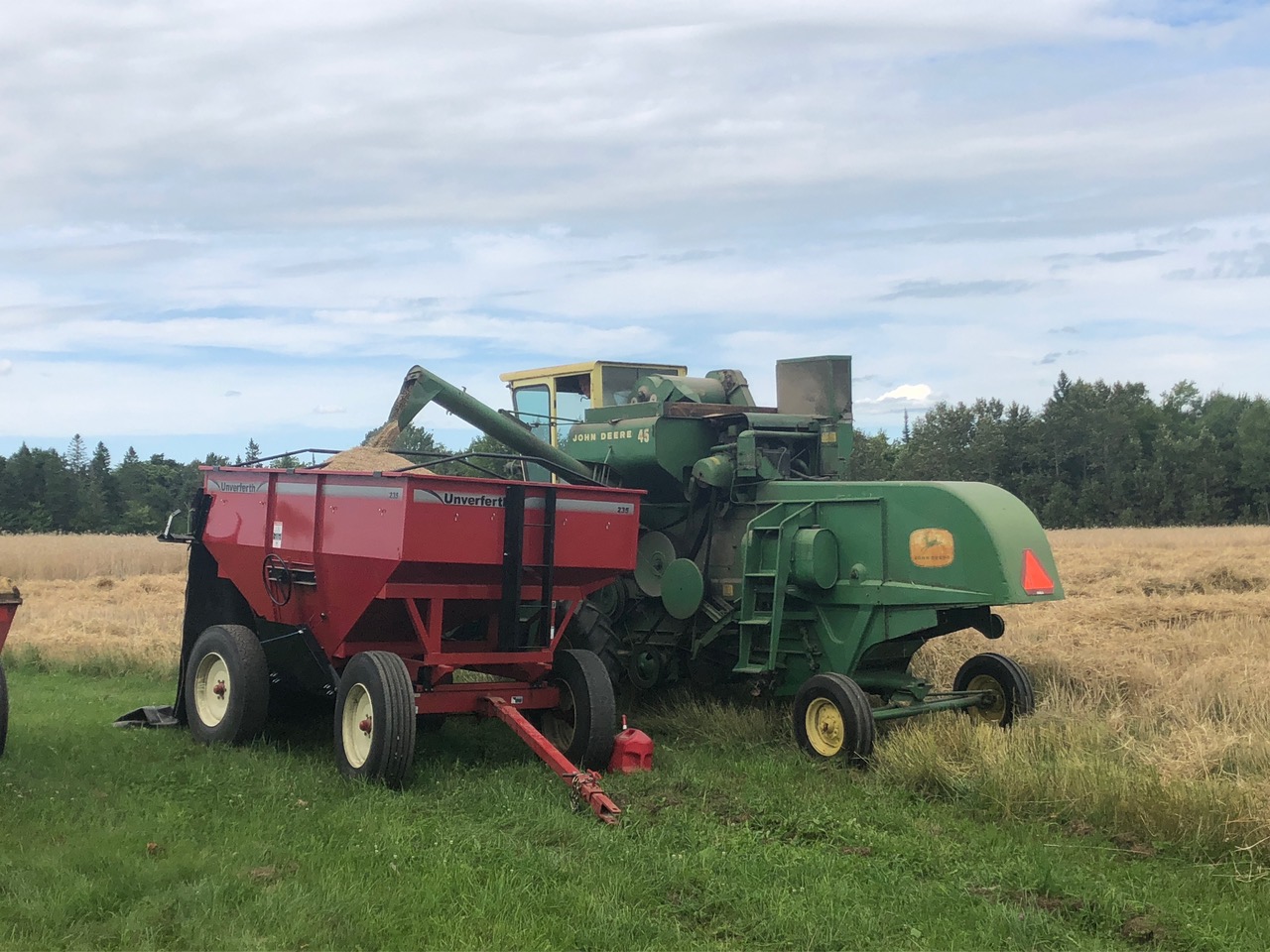
winter rye & barley – We have around 96 acres now dedicated to growing winter rye, barley and legumes/green manures to feed the soil and to give the land a rest as we rotate every third year out of grain. After these grains are cleaned for the third time, we smoke the barley on the farm with apple and cherry wood and then mill them on the stoneground mill at Elmore Mountain Bread. This flour is then transformed into Thornhill Farm smoky rye whiskey at Caledonia Spirits and shared with bakeries and coops in Vermont.
elderberries – currently 2.5 acres under cultivation, seven cultivars including Lewis Hill’s two cultivars Coomer and Berry Hill. The elderberries will be used by Hill Farmstead Brewery, Greensboro, Vermont, to make beer and by Black Heath Meadery, Richmond, Virginia, to make mead. Lewis Hill’s home and nursery is less than a mile away from this land, where he planned to cultivate elderberries on a commercial basis.
honey bees – on the farm will pollinate our flowers. I began a relationship with honey bees over 50 years when my brother Tom, 9 years old, and I bought our first hive for our family farm. We were enchanted by how industrious the bees were, giving us honey, pollen, propolis and beeswax for candles and salve. Around 40% of what is eaten is pollinated by insects, this to a great degree by honey bees. Because there are so few nectar & pollen plants on Thornhill Farm, we are planting these plants for the bees. We know the soil is worn out on the farm because our honey bees make so little honey. This is why we have pigs. When the forest is cleared, we do not burn the wood that is left behind, but chip it and mix these wood chips with manure and fungus mycelium to make piles of compost to improve the soil. Last summer we grew peas and oats as a green manure crop, and the pea flowers gave voluminous amounts of nectar to the honey bees and pollinating insects.


